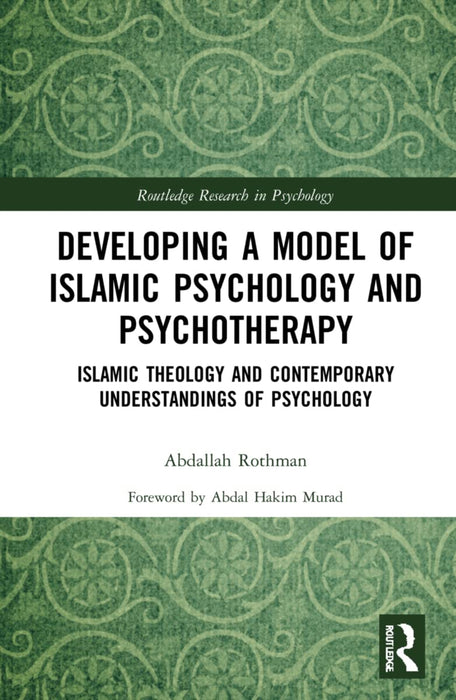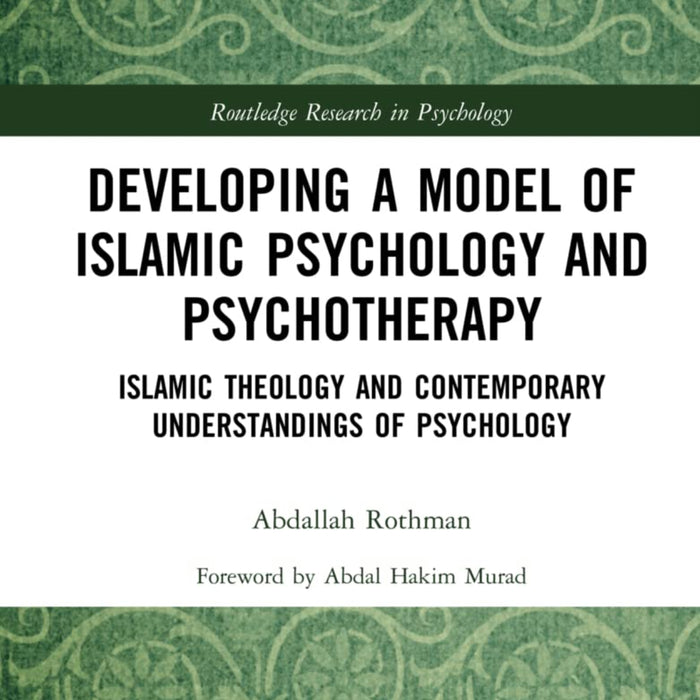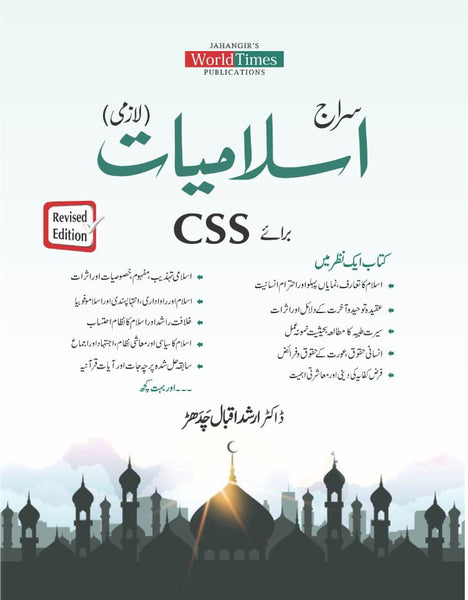Developing a Model of Islamic Psychology and Psychotherapy
- Publisher: PSYCHOLOGY
- Availability: In Stock
- SKU: 49052
- Number of Pages: 210
Rs.590.00
Rs.850.00
Tags: Abdallah Rothman , best books , Best Price , Best Selling Books , Cognitive Behavioral Therapy in Islam , Counseling in Islam , Cross-Cultural Psychotherapy , Developing a Model of Islamic Psychology , Developing a Model of Islamic Psychology and Psychotherapy , Ethical Issues in Islamic Psychology , Faith-Based Therapy , Holistic Mental Health Approaches , Islam and Emotional Health , Islamic Approaches to Mental Health , Islamic Cognitive Therapy , Islamic Counseling , Islamic Framework for Therapy , Islamic Perspectives on Mental Health , Islamic Psychological Practices , Islamic Psychology , Islamic Psychology Theories , Islamic Psychotherapy , Mental Health in Islamic Culture , ONLINE BOOKS , Online Bookshop , Psychodynamic Therapy in Islam , Psychological Treatment in Islam , Psychological Well-Being in Islam , Psychology and Psychotherapy , Psychotherapy and Religion , Psychotherapy Models , Spirituality in Psychotherapy
Developing a Model of Islamic Psychology and Psychotherapy (Routledge Research in Psychology) 1st Edition
Author: Abdallah Rothman
Introduction
"Developing a Model of Islamic Psychology and Psychotherapy" by Abdallah Rothman offers an in-depth exploration of how Islamic principles and concepts can be integrated into the field of psychology and psychotherapy. This groundbreaking work seeks to develop a model of psychotherapy that aligns with Islamic beliefs and values, offering a unique perspective on mental health and healing. Rothman explores the intersection of religion and psychology, drawing on both classical Islamic teachings and contemporary psychological theory to provide a comprehensive approach to therapeutic practice in Muslim contexts.
Key Points
1. Integration of Islamic Teachings with Psychological Concepts
- The book explores how key Islamic principles such as Tawhid (oneness of God) and the concept of the soul can be integrated into modern psychological theory.
- It provides a framework for understanding mental health from an Islamic worldview.
2. Development of a Culturally Relevant Psychotherapy Model
- Rothman proposes a model of psychotherapy specifically designed for Muslim clients, ensuring that therapeutic practices resonate with their cultural and spiritual needs.
- This model considers both spiritual healing and psychological well-being as essential components of therapy.
3. Addressing Mental Health in the Muslim Community
- The book discusses the mental health challenges faced by Muslims and how psychotherapy can be adapted to address issues such as identity, trauma, and the pressures of modern life.
- It highlights the importance of culturally competent therapy in improving mental health outcomes for Muslim individuals.
4. The Role of Faith in Healing
- Emphasizes the importance of faith and spirituality in the healing process, focusing on how Islamic teachings can provide therapeutic benefits.
- Rothman draws connections between spiritual practices like prayer and psychotherapy’s therapeutic techniques.
5. Practical Guidance for Integrating Islamic Psychology in Therapy
- Provides practical insights and strategies for mental health professionals looking to incorporate Islamic values into their therapeutic practice.
- Offers a guide for clinicians who wish to work with Muslim clients in a way that is both respectful and effective.
Why Read This Book?
- Essential for psychologists and therapists seeking to expand their understanding of cultural and religious considerations in therapy.
- A valuable resource for those looking to develop a model of psychotherapy that integrates Islamic principles into modern psychological practice.
- Offers unique insights into the intersection of faith and mental health, with practical applications for clinicians working with Muslim populations.
Conclusion
"Developing a Model of Islamic Psychology and Psychotherapy" by Abdallah Rothman is an essential read for professionals in the field of psychology and psychotherapy. It offers a novel approach to mental health treatment by combining Islamic teachings with contemporary psychological theories, creating a comprehensive and culturally relevant model of psychotherapy. This book will be particularly valuable for clinicians working in Muslim communities, providing a deep understanding of how faith and psychology can work together to promote healing.

























